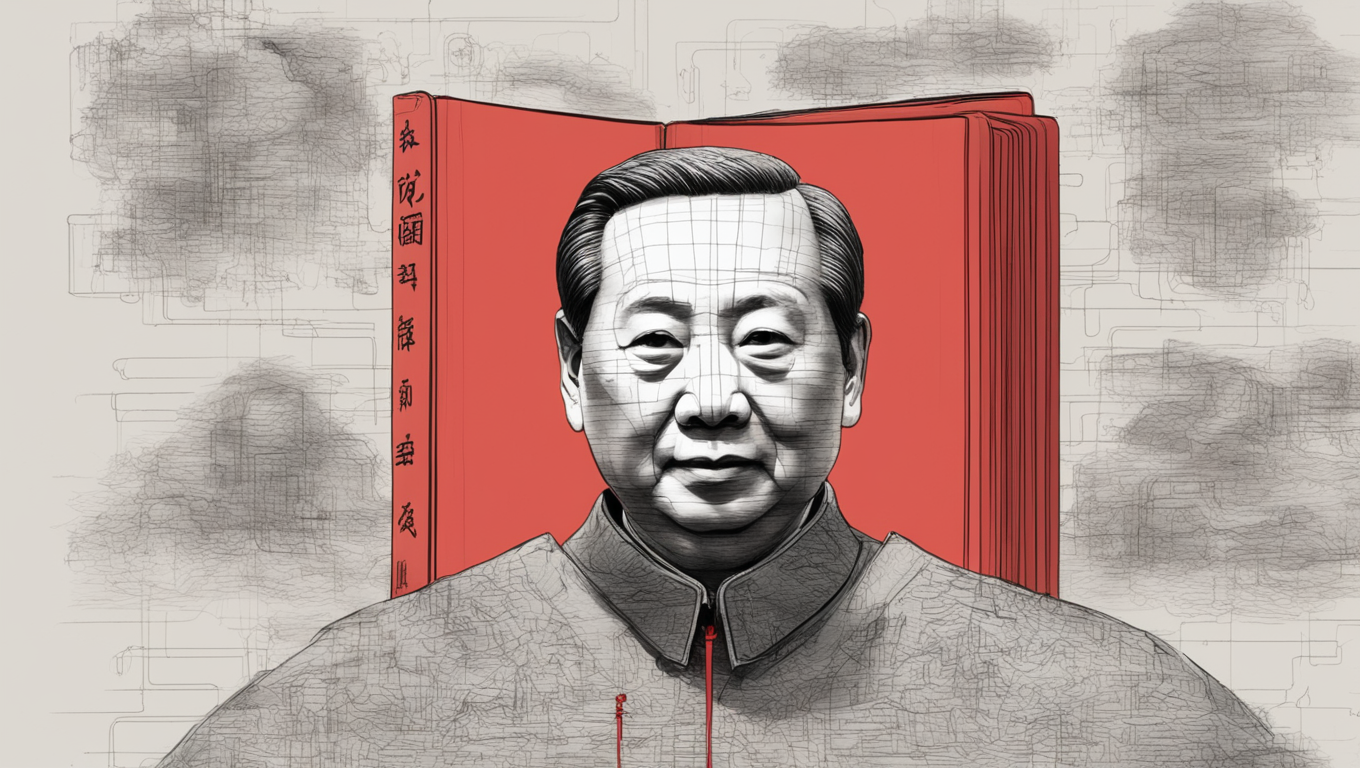China’s Closed AI System: A Deep Dive into President Xi’s Political Philosophy
In a move that further solidifies China’s commitment to maintaining strict regulatory control over its cybersecurity, the China Cyberspace Research Institute has unveiled a large language model (LLM) based on Chinese President Xi Jinping’s political philosophy. This closed AI system, touted as “secure and reliable,” is specifically designed to align with the government’s official narrative. The LLM incorporates President Xi’s philosophy, officially known as “Xi Jinping Thought on Socialism with Chinese Characteristics for a New Era,” which covers a wide range of topics, including political, social, and economic aspects of life in China.
The LLM, according to the administration’s magazine on WeChat, is built on a select knowledge base with locally generated data. Unlike other systems, it is not open-source, making it highly secure and reliable. The corpus used for the model is said to be professional and authoritative, ensuring the high-quality generation of content. The demonstrations provided in the post suggest that the answers are sourced from Chinese official documents and outlets, reinforcing the government’s control over the narrative.
The capabilities of this closed AI system are vast. It can answer questions, outline reports, summarize information, and even translate between Chinese and English. The intention behind this LLM is to meet the needs of a wide range of users, highlighting China’s ambition to leverage AI for economic growth. Premier Li Qiang previously introduced an initiative to integrate AI into traditional sectors, demonstrating the country’s determination to improve technologies.
It is important to note that this model has not yet been made available to the public and is still undergoing internal testing. However, it is open to “designated users by invitation.” This limited release indicates that Beijing is taking measured steps to ensure that its AI initiatives align with the government’s goals and policies.
This development comes as no surprise given the Chinese Communist Party’s efforts to further dominate China’s cyberspace. In February, the Central Committee issued a national notice urging compulsory learning activities for all party members to familiarize them with Xi Jinping Thought. The notice also emphasized the importance of controlling internet traffic to maintain a “positive energy” in the online space. Chinese firms, while eager to develop their own AI models, must ensure that their narratives align with the government’s playbook and adhere to strict regulatory controls.
Although this closed AI system exemplifies China’s commitment to maintaining control over its cybersecurity and narrative, critics argue that it limits the freedom of expression and independence of thought. However, the government’s stance is that it provides a “secure and reliable” platform that ensures data sovereignty and aligns with its objectives for economic growth.
As China continues to make significant strides in AI adoption, it is becoming increasingly clear that the country’s closed AI systems will play a central role in shaping its technological landscape. With President Xi’s political philosophy at the core of this LLM, China is actively using AI to reinforce its official narrative and maintain control over its cyberspace. As the model progresses and becomes accessible to the wider public, the impact it will have on China’s societal and cultural fabric remains to be seen.





Use the share button below if you liked it.